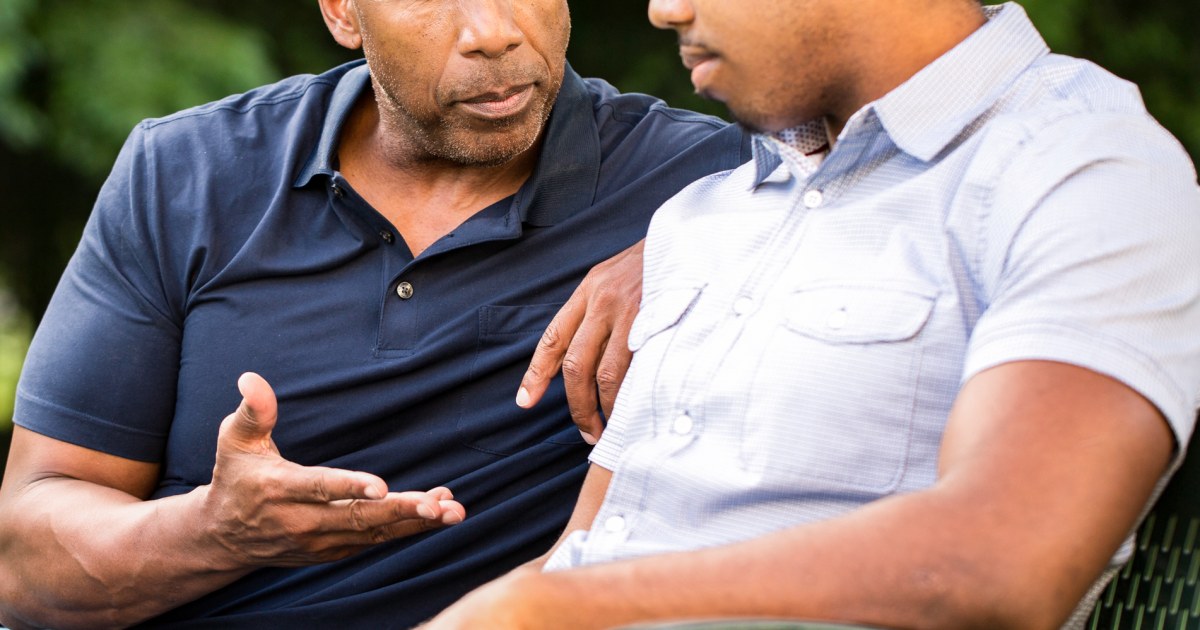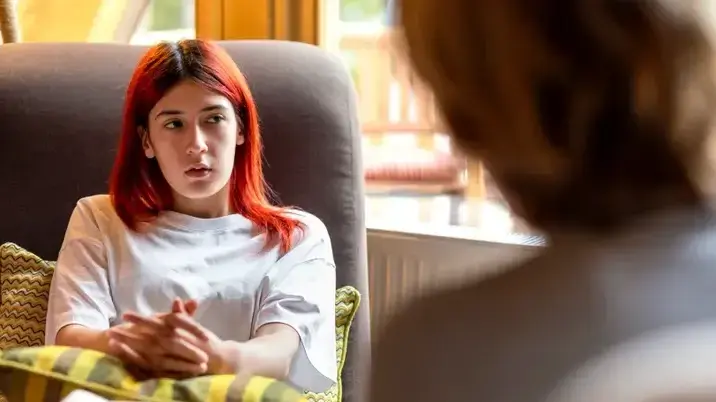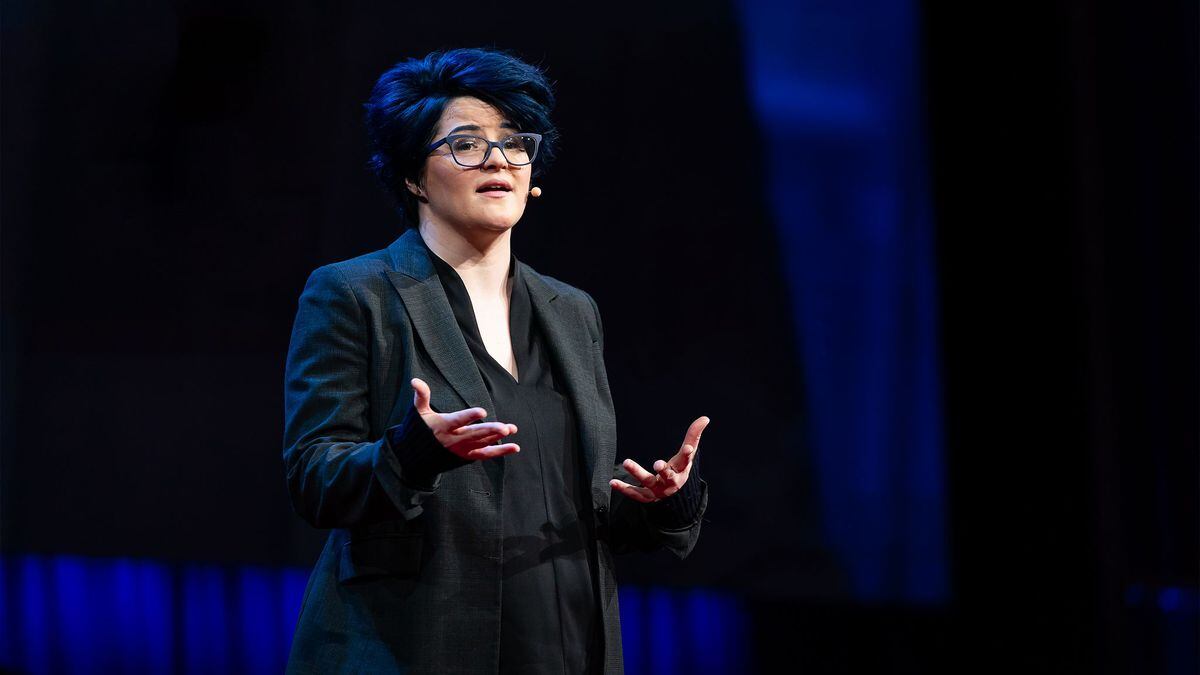How do you talk to teens about sexuality in a healthy way?
Many parents avoid talking about sex and sexuality with their teens, thus essentially leaving their children alone in front of a topic they have a lot of questions about.
So how do you do that in a good way?
An educator for healthy sexuality explains
Petitioner Rosenfeld
20/02/2022
Sunday, 20 February 2022, 07:08 Updated: 07:11
Share on Facebook
Share on WhatsApp
Share on Twitter
Share on Email
Share on general
Comments
Comments
What in the world will I not talk to my parents about?
Many tabs with different themes are scattered throughout the room, and I ask the boys and girls I guide to choose the theme.
The answers to my question are almost always the same: about masturbation, about sexuality and sex, about pornography and sexual assault.
It could be that quite a few parents reading these lines are now shrinking in a chair, or perhaps actually releasing a sigh of relief.
"Lucky," they think, "it embarrasses me too," or "I really do not know what to say."
And maybe another voice that says "I wish I was the address"?
Even for very involved parents, a discourse on sexuality is still taboo, a discourse we are afraid to deal with.
It is true, the emotional challenges of today's youth are greater than ever, and a discourse on the issues of sexuality often requires us to be in an exposed and vulnerable position, sometimes undecided.
More on Walla!
Why do you have to talk to your children about sexuality at an early age?
To the full article
Many parents find themselves confused, not to say helpless in the face of the many complexities the children face: whether around issues related to physiological development and dealing with appearance, social networks, exposure to sexual content, sexual experiences and more.
In the absence of knowledge, we tend to leave this important role to other people: the counselor, the educator or even the peer group.
We are not sure how and when to intervene, or what exactly to say.
Sexuality in teens is still a discourse that is taboo for many.
Teens in bed (Photo: ShutterStock)
Even if we have already chosen to have a discourse on sexuality, it will usually take place "without choice" - around sexual assault, at worst, or around first relationships, at best.
It is also a discourse that will usually deal with the importance of having protected sex - and the intention is to use contraception.
This is a discourse that is primarily technical, and certainly does not address the range of emotional complexities associated with having sex, which are a central part when it comes to protection.
Discourse on sexuality should start from a young age.
Of course, for each age his emphasis and attitude is different, but the sooner we teach our boys and girls to know their body, love it and respect their own and the other's boundaries, so we can reduce the risk of injury and increase the chance for a natural, safe and healthy experience.
Messages from infancy
Our sexual behavior is an environmental product.
The messages we receive from infancy from home and society largely shape the way we grow up to relate to our body and sexuality.
Our messages, parents, are crucial in how our boys and girls grow up to relate to their own and the other's body, and whether their sexuality will be experienced as a positive source of pleasure and enjoyment, or whether it will connect with shame and fear.
An example that can help and illustrate this is the way and language we call our genitals.
Stop for a moment and think, what do you call your penis?
Named "penis" or "vagina", or maybe another word?
What are the meanings derived from it, and is it the same name by which it is called for the genitals of our boy or girl?
If not, at what age does it change, and why?
This may sound like a marginal example but it is important to try and understand our relationship with our sexuality, and how we communicate it further to our boys and girls.
The way we choose to talk (or not talk) about the genitals can hint at the hidden messages that go through it: Are these messages of concealment and shame?
Maybe of affection?
Maybe even respect?
What will our boys and girls grow up to understand from this about their penis?
And more importantly - what will they understand from this about communicating with us - their parents?
It is also a discourse on tendencies and identity, not just about sex (Photo: ShutterStock)
Discourse on sexuality is not just discourse on genitals, of course.
Our sexuality is made up of a variety of biological, social and emotional characteristics.
A discourse on sexuality is a discourse on boundaries, on touch and intimacy, on managing emotions, on the body, on tendencies and identities and so on and so forth, and is therefore a rolling discourse.
As our boys and girls grow older, the curiosity and innocent experience changes and becomes desirable and directed.
Sexuality begins to connect with pleasure, fantasy and attraction to the other.
As is well known, things start to get complicated, and in the absence of a significant adult who will direct and mediate the many sexual messages that flood them from all sides, natural and healthy experiences can take on an inappropriate and even offensive tone.
Let's learn together
Many parents are afraid of being perceived as "unprepared" and therefore do not enter into this discourse in advance.
But whether we like it or not, at some point we will have to deal with questions that arise, and it is desirable that we do background work and arrive at a cohesive one.
That's right, we do not have and will not have the answers to all the questions and there are issues that we are still grappling with ourselves.
So what?
Maybe this is actually an opportunity to study together?
The boys and girls I meet are confused, overwhelmed and thirsty for information and guidance.
Wouldn’t we like to be the address for them for any question or difficulty?
Even if we do not always have the answer, our goal is to help them reach a trusted source who will give them the tools and knowledge they need.
It is important to understand, when we do not talk to them, we leave them alone to deal with and internalize all the problematic messages we would like to ward off, from negative body image to violent and abusive sexual practices.
When we convey to them that we are there for them on these issues as well, we also spread a network of protection and security for them, but also convey to them the message that a discourse on sexuality is natural and important that it be an open discourse.
What will they learn from this about conduct within their relationships?
More on Walla!
Embarrassing but important: what to say to a small child who masturbates in the living room?
Preschool Sexuality: When is it an innocent game and when to intervene?
Sexual protection: This is how you will teach children to protect themselves from an early age
Yitzhak, 72, bought a used car - and was stung for NIS 200,000
It is possible to break the barrier of embarrassment
"So what's the topic I'm most interested in talking about?
I ask now.
Guess which cards the boys and girls are choosing now.
True, exactly the same thing - the issues that are most burning for them are also the issues that they do not want to talk about with us.
Many parents will be surprised to find that when they cross the initial embarrassment barrier an opportunity for intimate and special communication is created that gives our boys and girls the feeling that there is someone to trust, that the door is not closed to them and that we are an address for shared thought and consultation.
At the end of the day, it is important to remember that a discourse on sexuality is a discourse on values.
Just as we want to teach our children to act with compassion and sensitivity and to act out of critical thinking, so too in the sexual realm we want to educate them to listen to themselves and others, and to promote their and the environment's protection.
Sexuality is a natural and wonderful thing, it is a whole and wonderful world to discover and it invites exciting and enjoyable experiences and experiences.
We as parents have the responsibility to help our boys and girls put the boundaries in the right places so that they can explore and experience with pleasure and safety.
The Conference on Beneficial Sex Education is a conference we created for parents, men and women of education and care in order to make accessible and enable the important discourse on sexuality between parents and educators - for youth and children.
The conference will be attended by the best lecturers and leading lecturers in the field and in cooperation with the professional organizations in the country will hold over 60 workshops, panels and live lectures.
All the details on the event page on the website of Healthy Consciousness.
health
parenthood
Child health
Tags
sexuality
Teens
intercourse






/cloudfront-eu-central-1.images.arcpublishing.com/prisa/XTAU622NTRE3RB52SAFMPD7F64.jpg)
/cloudfront-eu-central-1.images.arcpublishing.com/prisa/7QVPDOHXUJECPHX3SFFN3HDV2U.jpg)

